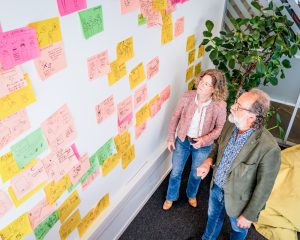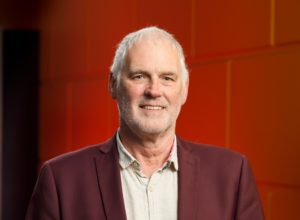Eindhoven Engine challenges PDEng students
In the last week of August, Eindhoven Engine and MEDICAID (e/MTIC) participated in a PDEng challenge week of TU/e.
How to measure Quality of Life?
A group of four PDEng students with different backgrounds were challenged with the question ‘How to measure Quality of Life?’ – a complex topic on which the group worked for five days.
Besides working on the problem, the students followed courses in brainstorming, design thinking, system thinking (by Walter Baets, Eindhoven Engine Academy) and teamwork.
The challenge was concluded with an excellent presentation which will serve as a basis for follow-up projects on Quality of Life. Huge thanks to Georgio Mosis for his contribution as co-case owner, to Lukas Dekker for his valuable input on this topic and to the group of PDEng students: Song, Suyash, Wan-Yi and Sukrut.
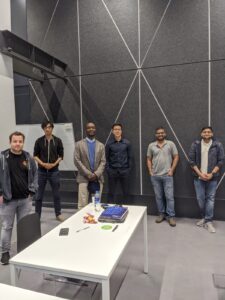
With an investment of over €2.2 million, various challenging, innovative projects with potential impacts on society and the economy are being given space within Eindhoven Engine. Together, these projects represent an investment of €16.8 million. The money for the Eindhoven Engine OpenCall comes from the Regio Deal Brainport.
Following the submission deadline of 4 June, a team of experts has examined the 11 projects submitted. Each of the projects was first assessed against formal criteria which had been published in advance and which set a high quality standard. Paul Merkus, coordinator of the OpenCall: “The text of the OpenCall 2020 was clear, which allowed the evaluation process to run smoothly and fairly. The team of experienced, independent experts was able to determine the ranking of the nine eligible proposals on the basis of these criteria. I’m proud of that.” Yesterday, the Advisory Board of Eindhoven Engine – with representatives from the knowledge institutions TU/e, TNO and Fontys and the business community – also gave a positive recommendation on the proposed selection of projects.
“We see a nice mix of diversity in the consortia.
Eindhoven Engine is picking up
more and more steam.”
“In this time of the corona pandemic in particular, we see a great need for innovation. Companies and knowledge institutions have worked together intensively to come up with strong project proposals,” add directors Katja Pahnke and Maarten Steinbuch. “We therefore see a nice mix of diversity in the consortia. Eindhoven Engine is picking up more and more steam.” The projects are highly diverse in their focus: climate, vitality, health and smart manufacturing.
“Co-creation and co-location are the basic ingredients for unlocking collective intelligence in order to give a boost to innovation: this is Eindhoven Engine’s way of working. We look forward to the participating consortia soon becoming part of our ecosystem.”

Eindhoven Engine
Eindhoven Engine unlocks the collective intelligence in the Brainport region. Thanks to a unique formula, innovators from companies can join forces with students and experienced employees from knowledge institutions in order to work together to accelerate innovation and realize disruptive co-creation projects in which co-location is a prerequisite. The founding fathers of Eindhoven Engine are the knowledge institutions Fontys, TNO and Eindhoven University of Technology and the companies Philips Healthcare, Signify, ASML, VDL, NTS and NXP. Eindhoven Engine’s funds come from the Brainport Regio Deal.
OpenCall 2020 projects
Carbyon DAC
Humanity is facing an unprecedented challenge: global warming, driven by carbon dioxide (CO2) emissions from fossil sources such as oil and gas. However, these emissions, if captured, can be a renewable carbon source with applications such as crop growth and sustainable fuel synthesis. Carbyon will develop Direct Air Capture (DAC) technology to remove CO2 from the atmosphere and turn it into a green substitute to fossil fuels. As the global demand for renewable carbon will increase once the price level reaches €50 per ton of CO2, Carbyon is challenging multidisciplinary teams within Eindhoven Engine to collaboratively improve the main cost drivers of DAC technology.
Partners: Carbyon, DIFFER, TU/e
ECoS-IAQ Efficient Comfortable School Indoor Air Quality
Installations in buildings are responsible for around 35% of all energy consumption, approximately 20% of which is due to inefficient operations. Inferior environmental conditions within classrooms can have both short- and long-term health effects, mainly due to the presence of particulate matter. With greater insights into sensors, data interpretation, trend signaling, continuous monitoring, fault detection/diagnosis and predictive maintenance, problems can be identified in the Heating Ventilation Air Conditioning (HVAC) systems of schools. The ECoS-IAQ project focuses on the creation of product development concepts for air handling manufacturers, air filter manufacturers, control companies and installers.
Partners: Building G100, Camfil, ISSO, Kropman, Lucas Onderwijs, NedAir, TU/e
SmartMan
Smart Manufacturing aims to improve factory efficiency by optimizing production processes, but SMEs often lack the capacity to create innovation in this domain. Bringing together Eindhoven Engine, Fontys, TNO and Brainport Industries Campus, the SmartMan project comprises research into various facets of smart manufacturing, including robot-assisted manufacturing, data sharing, industrial AI, virtual reality and autonomous transport. Student projects will be executed at SMEs with the goal of developing knowledge, technology and methods for combining quality, automation and flexibility in manufacturing. Success will be measured in terms of the economic value of improvements per project and company.
Partners:Fontys, TNO, Smart Industry Fieldlab Flexible Manufacturing partners, VDL, VBTI and several SMEs
iHeat@Home
The iHeat@Home project contributes to a breakthrough innovation in thermal energy storage: a heat battery which is better, cheaper, smaller and greener than any competitor. This will accelerate the energy transition, promote the development of renewable energy sources, reduce grid investments and create new business. This is all happening here in the Brainport region. iHeat@Home focuses on solutions for real-time data on the heat battery’s state-of-charge and its optimal data management, with three coherent solutions: 1. The basis for a sensor which is robust and cheap; 2. Communication protocols and data management; 3. Integration in a validated, user-ready heat battery. The aim is to bring this technology to the market by 2023.
Partners: Caldic, Fontys, TNO, TU/e, Warmtebatterij BV
POWer FITTing FITTing Persons’ vitality and optimizing their Work Environment
In an increasingly competitive global economy, physical inactivity and burnout rates are increasing. Sustainable employability based on good physical and mental health is therefore crucial, preventing absenteeism and also reducing healthcare costs. POWer FITTing optimizes the relationship between vitality and the (home) office environment through the combination of data acquisition, integration and application for the validation and acceleration of user-oriented solutions. By taking into account individual, societal and contextual factors, this enables employees to remain both healthy and productive. This benefits companies, individuals and wider society.
Partners: Fontys, HC Oranje-Rood, IMEC, TNO, TU/e
WOMBATH: towards an artificial womb
Following their birth, each child faces a physiological transition from mother-placental life support to (self-sufficient) life outside the womb. For some premature babies, this transition occurs too quickly. This places a heavy demand on the child’s immature vital organs, which is why extremely premature babies often experience serious, lifelong health problems with possible social consequences. As a trial in recent years, premature lambs have successfully been kept alive in a fluid-based environment, allowing them to develop in the same way as in the womb. The results are also promising for human application. The WOMBATH consortium will develop a medical device – an artificial womb – that supports the safe development of extremely premature babies outside of the womb. Ultimately, these infants will have better health prospects than premature infants with conventional care.
Partners: LifeTec Group, Máxima Medical Center, MEDSIM, NEMO Healthcare, POLIMI, RWTH Aachen, TU/e
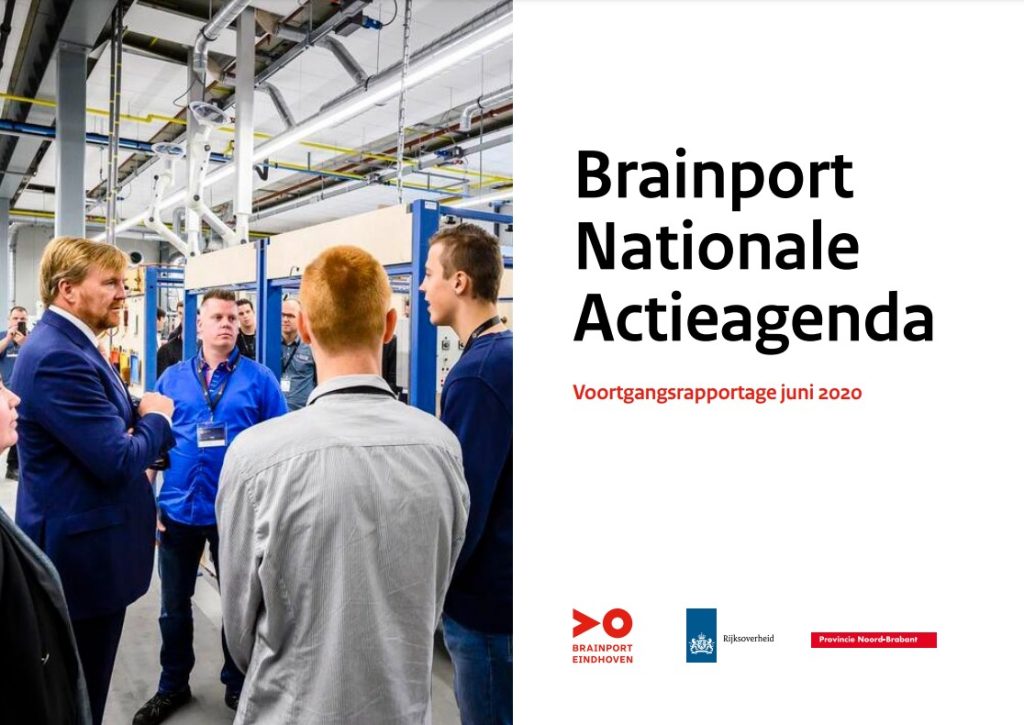
Today’s publication of the ‘Brainport Nationale Actieagenda’ progress report shows the positive developments of the collaboration and execution of the second year of the ‘Brainport Nationale Actieagenda’.
The report provides insight into the many steps that have been taken to elaborate the Mainport status of Brainport Eindhoven. Characteristic during this period is the collaborative effort of the triple helix partners on Artificial Intelligence in the NL AI Coalition, the development of the Brainport Smart District, the substantiation of the first Eindhoven Engine projects and the establishment of the 5G hub on the High Tech Campus. Read more… (Dutch)
Go directly to the progress report Brainport Nationale Actieagenda (Dutch)

Like many of you, we at Eindhoven Engine have had to adapt to the challenges of living and working, facing the impact of COVID-19. Virtual meetings, online workshops and webinars have allowed researchers and related projects to remain on track. In addition, digitalization even enabled many processes to be accelerated …
In this edition of Eindhoven Engine News:
- Virtual location at Eindhoven Engine
- Remote working and online conferencing: the corona impact on Smart Mobility
- Co-location is key for the CM-FDD-HVAC project
- Wicked challenges 2
- The far-reaching impact of epilepsy
- And more
Stay connected with Eindhoven Engine.
Subscribe to Eindhoven Engine News via office@eindhovenengine.nl.
Recover@Home is a personal health plan which patients can execute outside the hospital. This plan is supported by e/MTIC senior management and researchers, clinical and industry partners (Catharina Hospital, Philips) and a start-up coach.
Background
Healthcare in the Netherlands is going through a fundamental shift due to changes in demand for care brought on by the current COVID-19 crisis. Hospitals are under increasing pressure to deal with the increased demand to manage patients with different levels of severity and, at the same time, manage the risk of contamination associated with this highly infectious disease. Patients need to be discharged quicker and the rehabilitation needs to be managed at home. To organize this, healthcare professionals need to make a holistic patient assessment to create a personal health plan which the patient can carry out at home.
But for this to take place Key Innovations are required!
Such as:
- Patient assessment (physical, mental..) to create an individual health plan
- Devices for intelligent assistance for rehabilitation at home
- Remote rehabilitation delivery models to connect all stakeholders in the case management system, identify issues early and triage risk assessment for the right level of response
- Data sharing within the care network
Does this sounds interesting to you? And do you feel you need to support this? Find more information via: https://www.linkedin.com/feed/update/urn:li:activity:6665526585094914048/

“The project is fine,” says Gijs Dubbelman, Assistant Professor in EE-SPS’s Mobile Perception Systems Lab at TU/e. “Everyone is on track and no delay is expected. However, far fewer demos could be done than planned, so the valorization side is leading. Because of the coronavirus, there’s a (good!) focus on research.” He’s referring to the Smart Mobility project of Eindhoven Engine, in which co-located PhD students work alongside semiconductor
giant NXP on Deep Learning for Embedded Automotive Platforms and Spread-spectrum Modulated And interfeRence resilienT RADAR. Although the coronavirus has hampered much of global work and education, projects like this show the resilience of research in Eindhoven.

“Everyone is on track and no delay is expected. Because of the coronavirus, there’s a (good!) focus on research.”
Gijs Dubbelman, TU/e professor
Creative planning
Daan de Geus, a PhD student within the project, has been pleasantly surprised by the ease with which some aspects of the research can be done remotely. “I’m researching scene understanding algorithms for self-driving vehicles and robots, which they can use to gain situational awareness, and I’ve developed a method which is both very accurate and efficient,” he explains. “In principle, I can do almost everything remotely, so not a lot has changed. Working from home is different as I’m a little less productive, but – in general – it’s going quite well.”
For Daan, the main difference arises in communication with fellow PhD students and the students he supervises. “Normally, we’re in the same room and you can ask any questions and brainstorm together. You can’t do that as quickly through Skype or Teams. For undergraduate and master’s students, there’s also normally more face-to-face communication and it’s easier to help them when they’re stuck. It forces you to be creative and work more systematically: I now have dedicated days where I just focus on meetings, interactions with students or my research. I’m a lot more conscious of how I divide my time.”
Ups and downs
n spite of the pandemic, academia and industry keep moving forwards. This year’s International Conference on Robotics and Automation, for instance, moved from Paris to a prerecorded, online environment – including Daan’s presentation of his research. “The upside is that I didn’t have to choose which sessions or workshops to attend as everything is available,” he notes. “One additional plus is that it forces you to be much more conscious of what you’re explaining during your presentation. You might normally do it on the fly but now you really have to explain everything within ten minutes without questions afterwards. The downside is the social aspect, where you get the more creative discussions and ideas with your peers. That’s definitely what I missed the most.” With any luck, next year’s conference will have a physical space for the Smart Mobility project to share even more of their successes.

“It forces you to be creative and work more
systematically. I’m a lot more conscious of
how I divide my time.”
Daan de Geus. TU/e PhD student
More information about the Smart Mobility project.
Since April, we’ve been working within the Eindhoven Engine Community. Unfortunately, due to the corona pandemic, we’ve had to work in a mainly remote/virtual way. One of our PDEng trainees started on 1 May, but could not get a visa to come to the Netherlands and now works from his home in Mumbai. The current situation requires flexibility and adaptiveness as it’s a challenge to keep the team connected via laptops and virtual sessions alone.
The coronavirus clearly shows us the importance of good health, which is also threatened by the effects of global warming and air pollution caused by the use of fossil fuels. The Paris Agreement set a goal to reduce CO2 emissions. The preservation of energy resources is one of the key issues in modern society and is therefore of great importance in the built environment. Building installations are responsible for around 35% of the total energy consumption worldwide and use, on average, 20% more energy than is necessary due to inefficient operations. The application of Continuous Monitoring (CM) and a Fault Detection and Diagnosis (FDD) system can improve the operation of Heating Ventilation Air Conditioning (HVAC) plants by detecting faults. This supports their energy-efficient operation as well as their effectiveness when it comes to improving the indoor air quality of buildings.
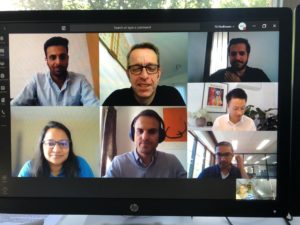
Co-location
Looking ahead to the second half of this year, we hope for growing cooperation and the involvement of all parties of Eindhoven Engine through co-location. We’re even thinking about setting up the whole team an Eindhoven Engine co-location as this would generate a novel way of working and promote involvement in iconic projects in this region.
In turn, this could result in increased interactions and ‘unexpected connections’, which are difficult in the time of the corona pandemic. This means joining together with people to think differently and to help each other accelerate innovation through our collective, innovative and enterprising spirit. We need personal contacts to inspire each other and come to new ways of thinking. Meeting one other at the co-location will strengthen the engagement between project teams within Eindhoven Engine. Let’s hope that this will soon become possible again.
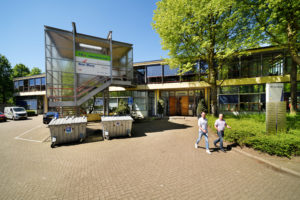
*Continuous Monitoring and Fault Detection Diagnosis of large HVAC systems
Photo: Bart van Overbeeke
Unexpected encounters are important to stimulate creativity, connect people from different backgrounds. This is important for new ideas, new innovations. The challenge, of course, is how to harness this all in this virtual age. For instance, imagine a kind of virtual marketplace where you can facilitate the exchange of ideas, then you could of course, unexpectedly, come across a cool and practical idea.
Most of us will think about co-location as a physical concept of people working in the same space or building. In respect to innovation, one might think about an R&D division or an innovation campus (like the former Natlab or the MIT Medialab). That is what we know works, and has delivered innovations the way we know them.
Multidisciplinary and multidimensional
Today, the demand for innovation is changing rapidly. Most companies cannot continue to innovate the way they did for years, nor can they innovate within their known product lines. The opportunities are being created where multidisciplinary co-creation occurs. The complexity of today’s economy, and the potential disruption, for good or for bad, of exponential technologies force companies increasingly into open innovation. Which means that co-location becomes more multidimensional.
Of course, multidisciplinary open innovation teams, working in co-creation to come up with innovations for problems that matter and that we need to solve, still benefit from sitting together, meeting, exchanging and empathizing. But Corona has shown us that this can be usefully extended by virtual co-location, opening up a multitude of additional possibilities that we did not imagine. Virtual co-location is not just bringing co-location into the virtual world; it is redefining it in order to make optimum use of the collective intelligence of the co-creators.
Extending the boundaries
Then space becomes more than just a physical concept; it becomes an idea, a way of working together, sharing and co-creating in ways we never did before. The quality and diversity of the ecosystem at the co-location, as well as the facilitation of the open-innovation teams, all become part of the concept of co-location. Suddenly, we can do so much more. We exponentially extend what we could have done before only in a physical space. Virtual co-location extends the scope of the possible.
Corona has, paradoxically, given us an opportunity to go beyond what we have done before. It can be a catalyst for co-creation. Become part of this new co-location and share your thoughts and ideas.
